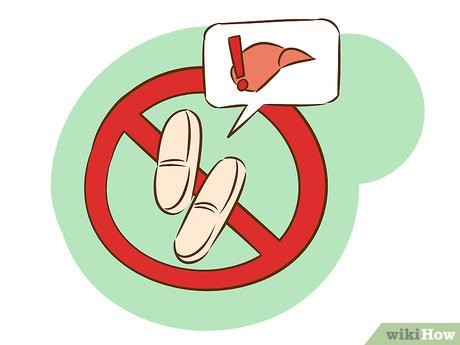Elevated levels of alanine aminotransferase (ALT) in the blood can signal liver trouble or other health issues, and it’s understandabky concerning when a blood test shows that ALT levels are high. It’s important, though, to note that strategies to lower ALT levels typically involve lifestyle and dietary adjustments—there’s no one “quick fix.” The following guide will provide practical, evidence-based methods to help you manage and potentially reduce your ALT levels. While it’s crucial to work with healthcare providers for personalized advice, these steps can serve as a compass on your journey to improved liver health.

Improve Dietary Choices
Making healthier food choices is fundamental in managing ALT levels. Eating whole, unprocessed foods can support liver health and reduce inflammation.
-
Incorporate more fruits and vegetables into your diet: Aim for a variety of colors on your plate, ensuring you get a wide range of vitamins and antioxidants.
-
Choose lean proteins: Opt for plant-based proteins, lean cuts of meat, and fish high in omega-3 fatty acids.
-
Reduce intake of sugars and saturated fats: Cut down on sweets, soft drinks, and unhealthy snacks. Also, limit red meat and full-fat dairy products.
-
Eat more fiber: Include whole grains, legumes, and leafy greens to help maintain a healthy digestive system.
-
Opt for healthy fats: Integrating olive oil, avocados, and nuts can aid in overall health and potentially impact ALT levels positively.
Summary: A balanced diet rich in fruits, vegetables, and whole grains, while low in sugars and unhealthy fats, can help lower ALT levels. Though dietary changes require time to show effects, they’re crucial for liver health and overall well-being with few downsides when implemented correctly.
Regular Physical Activity
Exercise helps increase insulin sensitivity and can be effective in lowering ALT levels by decreasing liver fat.
-
Start with light activities: If you’re new to exercising, initiate with walks, swimming, or yoga.
-
Gradually increase intensity: As you gain fitness, incorporate moderate-intensity exercises like brisk walking, cycling, or aerobics.
-
Be consistent: Aim for at least 150 minutes of moderate-intensity exercise each week, as recommended by health guidelines.
-
Incorporate strength training: Twice a week, engage in activities that work all the major muscles groups.
Summary: Regular physical activity can help lower ALT levels and improve liver health. The benefits of exercise are extensive, however, always start slow to reduce the risk of injury particularly if you’re not used to physical activity.
Lose Excess Weight
Carrying extra weight, especially around the midsection, can negatively affect liver health and ALT levels.
-
Set realistic weight loss goals: Aim for a gradual weight loss of 1-2 pounds per week.
-
Track your calorie intake: Use a food diary or an app to keep track of what you eat and make sure you’re in a calorie deficit.
-
Combine diet and exercise: Pair your healthy diet with regular exercise to promote weight loss.
-
Seek support if needed: Consider working with a dietitian or a weight loss group for guidance and motivation.
Summary: Losing weight, particularly reducing fat around the abdomen, can have a profound effect on lowering ALT levels. The journey to weight loss should be gradual and sustainable, and while it’s often challenging, the health benefits, including improved liver health, are worth it.
Alcohol Moderation
Alcohol can be a significant contributor to elevated ALT levels due to its impact on the liver.
-
Limit your intake: Follow the recommended guidelines for alcohol consumption or abstain altogether.
-
Opt for non-alcoholic alternatives: Explore the variety of non-alcoholic beers, wines, and cocktails available.
-
Understand portion sizes: Educate yourself on what constitutes a standard drink so you can monitor your intake.
-
Seek help if necessary: If you find it difficult to control your drinking, consider reaching out to support groups or health professionals.
Summary: Moderating alcohol consumption can dramatically improve ALT levels and liver health. While abstinence is the best approach for those with liver issues, even moderate drinking can have downsides and should be managed carefully.
Hydration
Staying well-hydrated is important for your overall health and can support liver function.
-
Drink plenty of water: Aim for at least 8 glasses a day, or follow the “half your body weight in ounces” rule.
-
Limit high-sodium foods: These can cause water retention and dehydration.
-
Incorporate hydrating foods: Add fruits and vegetables with high water content to your diet.
-
Avoid overly sugary drinks: Opt for water, herbal teas, or diluted fruit juices instead.
Summary: Proper hydration aids in the detoxification process and could contribute to lowering ALT levels. The benefits of staying hydrated are clear, but it’s also possible to drink too much water, so it’s important to balance intake according to individual needs and activity levels.
Adequate Sleep
Lack of sleep can affect the body’s ability to maintain and repair itself, including the liver.
-
Establish a regular sleep schedule: Aim for 7-9 hours of sleep per night and try to go to bed and wake up at the same time each day.
-
Create a sleep-conducive environment: Ensure your bedroom is dark, quiet, and at a comfortable temperature.
-
Reduce screen time before bed: The blue light from screens can disrupt your sleep cycle. Aim to turn off electronic devices at least an hour before bedtime.
-
Incorporate relaxation techniques: Try methods like meditation or reading to help you unwind.
Summary: Adequate sleep can assist in maintaining healthy ALT levels as the body uses this time for recovery and repair. The benefits of good sleep habits are extensive, but changing sleep patterns can be a challenge and may require time to adjust.
Herbal Supplements
Certain herbal supplements are believed to have liver-protective properties that could potentially lower ALT levels.
-
Consult with a healthcare provider: Always talk to a professional before starting any new supplement, especially if you have existing health conditions or take other medications.
-
Consider milk thistle: Some studies suggest that silymarin, a compound in milk thistle, may have liver-protecting effects.
-
Look into turmeric: Curcumin, the active ingredient in turmeric, might help reduce liver inflammation and ALT levels.
-
Explore other supplements: Other products like artichoke leaf, dandelion root, and green tea have been discussed for liver health, but more research is needed.
Summary: While herbal supplements can be useful in lowering ALT levels, their efficacy and safety can vary widely. It’s essential to approach them with caution, consult healthcare providers, and factor in the possible downsides, including interactions with medications and side effects.
Avoid Toxins
Exposure to certain toxins can increase ALT levels by stressing the liver.
-
Reduce exposure to chemicals: Use natural cleaning products and personal care items to limit chemical exposure.
-
Practice safe sex: This helps prevent hepatitis, a viral infection that can cause liver damage.
-
Be cautious with medications: Some over-the-counter and prescription medications can increase ALT levels, so use them only as directed.
-
Stay aware of environmental toxins: Aim to limit exposure to pollutants and insecticides by using protective measures or avoiding areas where you might encounter these substances.
Summary: Avoiding liver stressors such as toxins and certain medications can benefit ALT levels. Being mindful of exposure can help, but some circumstances may be out of your control, emphasizing the importance of overall lifestyle and health maintenance.
In conclusion, managing ALT levels involves a multifaceted approach centered around a healthy lifestyle. From improving your diet and increasing physical activity to managing alcohol intake and ensuring adequate sleep, these steps collectively contribute to better liver health and potentially lower ALT levels. Remember that while change doesn’t happen overnight, consistency in these habits can bring profound benefits. However, it’s important to work closely with healthcare professionals who can provide personalized guidance and monitor your progress.
FAQs
Q: Can high ALT levels be reversed?
A: High ALT levels often indicate liver inflammation, and with appropriate lifestyle changes and medical intervention when necessary, it is possible to reduce ALT levels and improve liver health.
Q: How long does it take to lower ALT levels?
A: The time it takes to lower ALT levels can vary based on individual circumstances and the underlying causes, but with consistent lifestyle changes, some individuals may see improvements within a few months.
Q: Are there any medications to lower ALT levels?
A: No specific medications target ALT levels directly, but medications can address underlying conditions contributing to high ALT levels. Always consult with a healthcare provider to determine an appropriate treatment plan for your situation.








